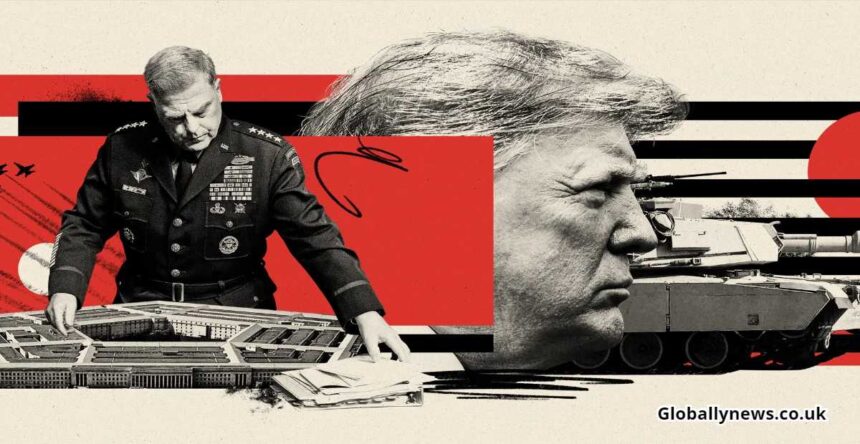In recent months, a number of high-profile military leaders have stepped forward to openly criticize former President Donald Trump, highlighting concerns over his leadership style, decisions, and overall impact on the military and national security. This unprecedented wave of criticism from retired generals and admirals reflects a growing unease among military professionals regarding Trump’s approach to governance, particularly his handling of sensitive issues that affect the armed forces and international relations.
One of the most notable figures to speak out is retired General James Mattis, who served as Trump’s Secretary of Defense. In a rare public statement, Mattis expressed disappointment over Trump’s divisive rhetoric and actions, stating that they undermine the very values the military stands for. He emphasized the importance of unity and collaboration, especially in times of national crisis. Mattis’s criticism is particularly poignant given his previously close relationship with Trump, making his remarks a significant departure from past endorsements.
Additionally, former Chairman of the Joint Chiefs of Staff, General Martin Dempsey, has also voiced his concerns. Dempsey highlighted that the military’s effectiveness relies on trust and respect, not only within its ranks but also in how it is perceived by the American public. He warned that Trump’s behavior could erode that trust, potentially leading to a dangerous disconnect between the military and the civilian leadership. Dempsey’s insights resonate deeply, especially as the military faces challenges that require strong, respected leadership.
Moreover, retired Admiral Mike Mullen, another former Chairman of the Joint Chiefs, added his voice to the growing chorus of criticism. Mullen pointed out that Trump’s approach to foreign policy, particularly his dismissal of long-standing alliances, poses significant risks. He argued that effective leadership in the military is about understanding the importance of diplomacy and maintaining relationships with allies, a principle he believes Trump has neglected. Mullen’s remarks remind us that military strength is not solely about hardware and troops; it’s also about building and sustaining partnerships worldwide.
The criticism extends beyond individual remarks, as many of these leaders have collaborated to form coalitions aimed at advocating for a more responsible approach to governance. For instance, several retired military officials have joined forces with organizations that promote civil discourse and national unity. Their collective efforts reflect a belief that the country must rise above partisan divides to ensure a secure future.
The military leaders’ concerns are not unfounded, as Trump’s tenure saw significant controversies, including the way he addressed issues related to racial injustice, the protests following George Floyd’s death, and his comments regarding military personnel. Many military leaders felt that Trump’s remarks about the military, particularly his controversial comments about using force against peaceful protesters, were inappropriate and damaging. These actions prompted a response from various military organizations and prompted further scrutiny from within the ranks.
In response to this growing discontent, some military officials have begun to speak out more publicly, emphasizing the need for integrity and accountability in leadership. They argue that military leaders have a duty to uphold the principles of democracy, regardless of political affiliations. This sentiment underscores the military’s role as a nonpartisan institution committed to serving the nation rather than any single leader.
As we look ahead, it is clear that the voices of these military leaders will continue to shape the conversation around national security and military policy. Their willingness to speak out reflects a commitment to the values of honor, duty, and respect that the armed forces embody. This unprecedented level of public dissent among former military leaders serves as a reminder of the critical importance of strong, principled leadership in times of uncertainty. The military’s integrity and effectiveness depend on the trust and confidence of the American people, and these leaders are dedicated to ensuring that this trust is maintained, regardless of the political climate.
In conclusion, as these high-profile military figures continue to articulate their concerns about Trump’s leadership, their insights remind us of the significant responsibilities that come with military and political power. Their criticism is not just about one individual; it’s about the future of American democracy and the values that underpin it. With each statement, they call for a reevaluation of what leadership means and the standards we expect from those in positions of authority.
